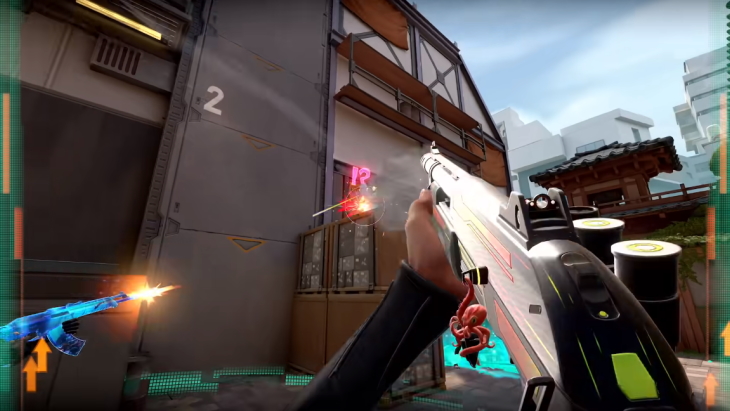
Riot Games have announced they will begin recording players using voice chat in Valorant, in order to tackle harassment and hate speech.
The announcement explains that “In order for us to take action against players who use voice comms to harass others, use hate speech, or otherwise disrupt your experience, we need to know what those players are saying.” To do so, they have updated their terms of service and privacy notice to allow them to record voice chat.
This comes “when a report for disruptive behavior is submitted,” after the voice chat is then analysed the necessary action is taken and the data is removed once it is no longer needed for review.
“After the data has been made available to the player in violation (and is no longer needed for reviews) the data will be deleted, similar to how we currently handle text-based chat reports. If no violation is detected, or if no report is filed in a timely manner, the data will be deleted. “
While Riot Games state they are starting with Valorant, they also state it is “the only available game that currently plans to utilize the ability to record voice data and review it when disruptive voice behavior is reported.” The privacy notice update will grant the legal right to League of Legends, Wild Rift, and Teamfight Tactics; but there are “currently have no plans to record player voice chat or expand the voice chat capabilities beyond party voice chat.”
This is not the first time players have had concerns with privacy over Valorant. In April 2020 they came under fire for their kernel-based anti-cheat software– dubbed Vanguard- in April 2020. In short, a kernel-based software would be able to detect cheating software operating in any part of the computer.
However, it could also hypothetically give Riot Games the ability to spy on user’s systems. Other concerns raised included how the system could be vulnerable to crashing computers, buffer overflow, and granting hackers access to the entire computer system (should work-arounds be created).
Riot Games’ Senior Software Engineer Nemanja Mulasmajic stated that month that they would be granting players more control over the anti-cheat software; allowing users to turn it off any time when the game is not running.
“We know collecting voice data is a concern for many of you,” Riot Games state, “but be assured that we would never ship anything if we weren’t comfortable having our own data treated the same way. And if you prefer to not have your voice chat captured, you may turn off voice chat.” Further, Riot Games state they will not be actively listening to users.
Riot Games also stated when initially defending their kernel based anti-cheat software “This isn’t giving us any surveillance capability we didn’t already have. If we cared about grandma’s secret recipe for the perfect Christmas casserole, we’d find no issue in obtaining it strictly from user-mode and then selling it to The Food Network.”
In addition, Riot Games are updating their terms of service regarding what can and cannot be refunded, the process of requesting a refund, rules for third-party distributors, and more. It also notes that Vanguard and other future games being protected by a kernel driver; they have “updated the language about anti-cheat software that we may require you to install to play certain instances of our games.”
“With our current or future games,” Riot Games explains, “we’ll always be as transparent as possible about our anti-cheat programs without compromising our solutions. We’ll let you know about any new anti-cheat programs especially with kernel mode drivers well before they’re released and required to be installed.”
Image: YouTube